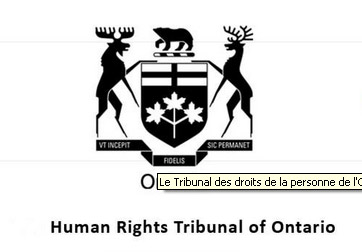TORONTO – A St. Lucian migrant worker who was called “a monkey” while working at a farm in Ontario and fired after he complained about it has been awarded $23,500 by the province’s human rights tribunal.

Adrian Monrose, 38, came to Canada to help support his mother, two children, 16 siblings and numerous nieces and nephews. He arrived in Leamington, Ont., in 2009 for a second stint at Double Diamond Acres Ltd. under the Seasonal Agricultural Workers Program.
Monrose and some of his fellow workers on the farm were called “monkeys” both by an owner and a supervisor, the Human Rights Tribunal of Ontario found.
The largest portion of Monrose’s compensation — $15,000 — was ordered because he “paid a significant price” for standing up for his rights, something migrant workers are hesitant to do because of their vulnerable positions, the tribunal found.
“The respondents’ response to (Monrose’s) complaint was not to investigate his concerns, but to terminate his employment,” vice-chair David Muir wrote in the decision made last week.
“In my view, considering the deliberate nature of the act and the immediate and objective consequences for (Monrose), the humiliation of being removed from the workplace and returned to St. Lucia all justify the award I have made.”
Monrose, who is now married to a Canadian and working in a plastic recycling factory in Windsor, Ont., said many other migrant workers wanted to help him with his case but were too scared to get involved.
“They don’t want to talk about it. They just keep to themselves,” he said in an interview. “They just do not have a voice.”
But he hopes this case will help others come forward about any discrimination.
“I think that the decision is going to inspire others to stand up for themselves as well,” he said.
Double Diamond owner Benji Mastronardi saw a lot of tomatoes on the ground of the greenhouse on May 20, 2009, and shouted, “You’re like monkeys on a branch,” the tribunal heard.
The next day, Monrose complained about a chair collapsing underneath him and supervisor Jeffrey Carreiro approached him aggressively, the tribunal heard. At that point Monrose pushed Carreiro away and the supervisor said, “That’s why Benji calls you guys monkeys,” the tribunal found.
Monrose was awarded thousands for lost wages as well as $3,000 as compensation for his loss of dignity, feelings and self-respect.
“There are some kinds of name calling that are so egregious that one incident may be sufficient to establish a violation of the code,” Muir wrote.
“I find that the use of the term monkey to describe a black man in the demeaning manner the term was used in this case is clearly discriminatory.”
Monrose complained to Mastronardi about the monkey comments and not getting an extra Saturday shift and was fired a little more than a week later.
There is “no other explanation” for why Monrose was fired and sent back to St. Lucia so hastily that he left some personal belongings behind, the tribunal found.
The company argued that Monrose was fired because of a propensity for violence and for making a threat. The tribunal found that to be “baseless.”
Muir found “significant credibility issues,” conflicts and “material contradictions” in the company’s evidence.
Monrose’s lawyer, Shane Martinez, said the case sets an important precedent. There are many cases similar to Monrose’s that go unreported because of the problems seasonal workers have accessing human rights tribunals in Canada.
“There are so many stories of migrant workers out there who come to Canada, participate in the program, have a negative experience with their employer and then as soon as they try to raise the concern they’re sent back home,” Martinez said.
“The workers who participate in the Seasonal Agricultural Workers Program are perhaps the most vulnerable because of how unbalanced the contract is and because of the great powers that it gives the employer to do whatever it wants in response to workers who try to stand up for themselves.”
The tribunal also ordered that Double Diamond implement a “comprehensive human rights and anti-discrimination policy with the assistance of an expert in human rights law” as well as training conducted by an expert in human rights.
Double Diamond did not return a request for comment.



Comments